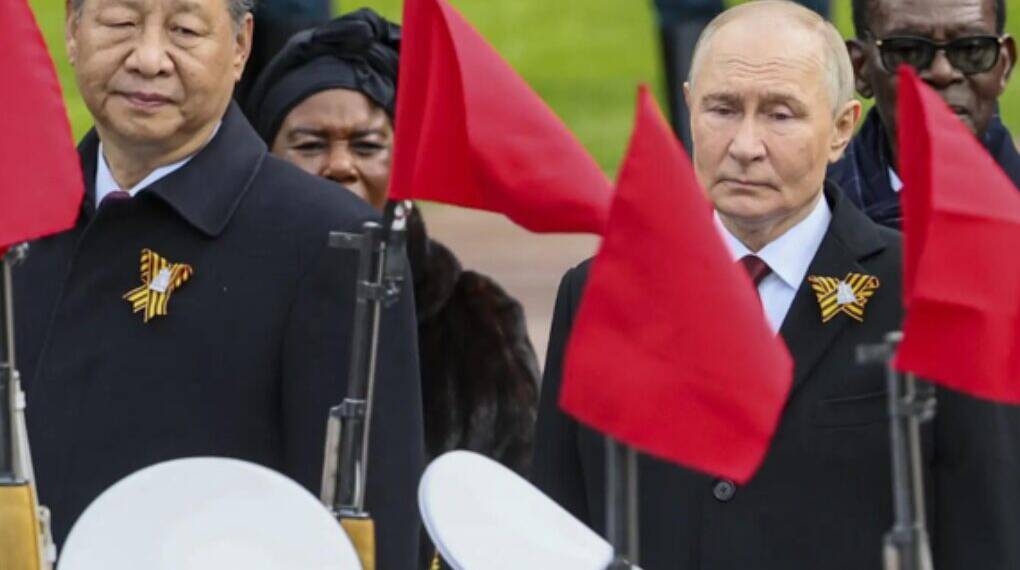In a stunning revelation that undercuts the carefully curated image of unity between Moscow and Beijing, a confidential document from Russia’s Federal Security Service (FSB) has labelled China a serious espionage threat, exposing deep mistrust behind the scenes of their “strategic partnership.”
According to The New York Times, which reviewed the leaked eight-page memo allegedly authored by an FSB intelligence unit in late 2023 or early 2024, China is actively spying on Russian military operations, targeting sensitive technologies, and recruiting disillusioned Russian experts. The internal document, verified by six Western intelligence agencies, paints a stark contrast to the warm public rhetoric exchanged by the two nations.
“China Is the Enemy”
The memo, obtained by hacker group Ares Leaks, reportedly includes blunt language from the FSB’s 7th Service — the division tasked with Asian counterintelligence. “China is the enemy,” the officers state in clear terms, warning of a rising threat from Chinese intelligence services exploiting Russia’s wartime vulnerabilities, particularly during the ongoing conflict in Ukraine.
Despite public statements celebrating a growing Russia-China alliance, the document outlines serious concerns that Beijing is using soft-power tools and covert tactics to gain long-term strategic leverage, including alleged interest in Russian Far East territories and Arctic development.
Codename Entente-4: Countering Chinese Infiltration
Just days before Russia’s 2022 invasion of Ukraine, the FSB is said to have launched a secret counterintelligence operation dubbed Entente-4, designed specifically to block Chinese infiltration while avoiding overt diplomatic confrontation. The memo instructs officers not to publicly acknowledge China as a threat — a clear indication of the diplomatic tightrope Russia is walking.
The FSB believes that China is attempting to recruit former Russian military engineers, especially those involved in now-defunct Soviet-era projects like the ekranoplan, by exploiting their financial struggles. Chinese operatives have reportedly targeted Russians married to Chinese nationals, used WeChat for surveillance, and disguised intelligence activities through academic exchanges and commercial deals.
Territorial Ambitions and Soft Power
The leaked memo also accuses Chinese researchers of reviving historical claims over Russian territory. It mentions Chinese-produced maps using ancient names for cities like Vladivostok and scientific expeditions supposedly searching for ancient Chinese ethnic roots in Russian land — efforts the FSB views as part of a broader campaign to lay the groundwork for future territorial influence.
The Arctic region and Central Asia are also flagged as key areas of concern. Chinese universities and companies are allegedly acting as fronts to monitor Russian projects in the Arctic, while Beijing simultaneously expands its soft-power reach across Central Asia — a region of strategic importance for both powers.
Managing the Dragon
Though wary of China’s ambitions, the FSB memo underscores Russia’s dependence on Beijing — particularly for oil exports, technology, and sanctions-evasion mechanisms amid international isolation. Hence, any countermeasures must be tightly controlled and cleared at the highest levels to avoid derailing bilateral ties.
Interestingly, the document reveals that Russia isn’t solely on the defensive. The FSB admits to feeding Chinese spies selected positive information about the Ukraine conflict — a tactic designed to influence China’s internal perception of Russia’s military strength and prevent doubts about its reliability as a strategic partner.
“A Risk Worth Taking”
Carnegie analyst Alexander Gabuev told The New York Times that despite clear signs of espionage, President Vladimir Putin remains committed to deepening ties with China. “Putin believes that he can go much deeper into this Chinese embrace, and it’s not risk-free, but it is worth it,” Gabuev stated.
The leaked memo underscores the complex and uneasy nature of the Russia-China relationship — a façade of unity masking a growing undercurrent of distrust, strategic calculation, and geopolitical maneuvering. As the global order continues to shift, the document offers a rare glimpse into how even the closest public alliances may be riven with private suspicion.








